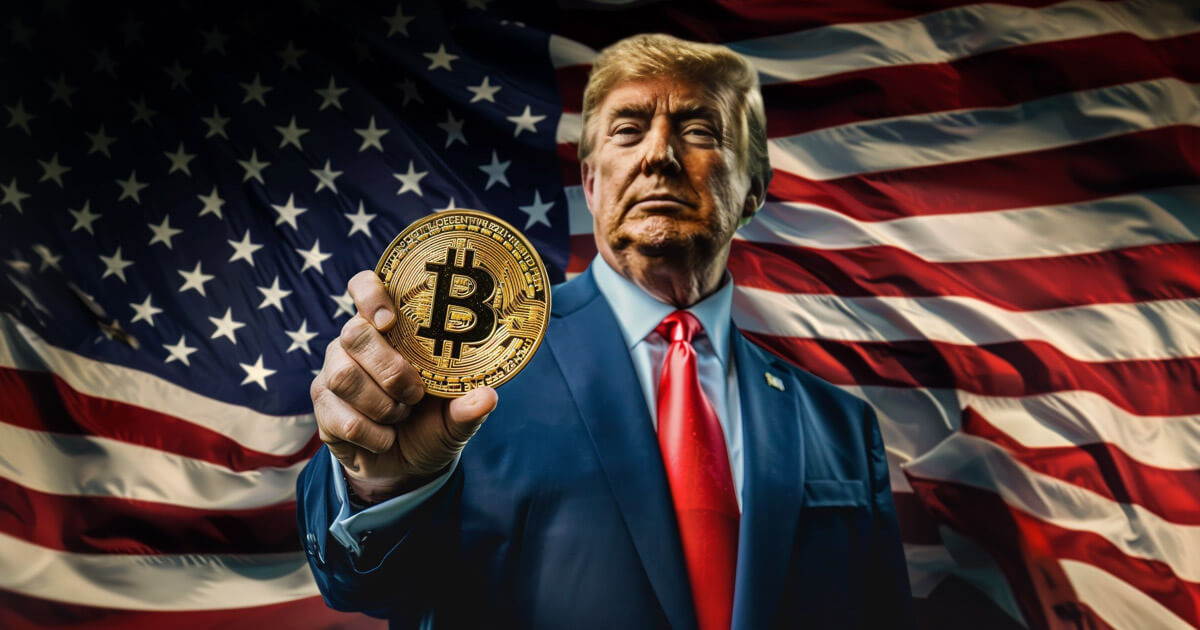
The following is a guest post by Kadan Stadelmann, CTO of Komodo Blockchain.
Bitcoin’s centralization of miners threatens it, but former President Donald Trump’s promise to drastically cut energy prices could help ensure Bitcoin’s decentralization.
The majority of Bitcoin mining occurs in Bitcoin mining pools, which appear to be centralized in China, with a handful of institutions. According to blockchain analytics firm CryptoQuant, Chinese mining pools account for around 54% of Bitcoin’s hashrate.
News reports that China has banned cryptocurrency mining Exaggerated The situation on the ground. The country still dominates the hash rate, largely due to cheap electricity and infrastructure.
A Bitcoin mining pool is a network of miners who work together to mine Bitcoin blocks and share the mining effort. A reward is a benefit received when mining a new block. Most miners concentrate their hashing power in pools because it is easier, cheaper, and more likely to find a block.
These mining pools have resulted in Bitcoin mining being consolidated into fewer and fewer miners. Today there are only two mining pools USA Foundry and Antpool account for about 50% of Bitcoin’s hashrate.
This poses a risk to the security and resiliency of Bitcoin. If enough mining pools form a cartel and coordinate their hashrate usage, they could influence transaction processing on the entire Bitcoin network and have the power to censor transactions.—Basically, it acts as a bank that can “freeze” accounts in a system without intermediaries.
Centralized mining is a real threat
Moreover, these Bitcoin mining pools, including Btc.com, Binance Pool, Poolin, etc., not only make up the majority of Bitcoin mining, but they also use the same block templates (pre-formatted structures of mining software) to select and order transactions exactly the same as each other, according to Antpool. analyze Written by a Bitcoin developer named 0xB10C.
The fact that all of these mining pools use the same block template, transaction selection, and ordering rules indicates a collaboration or standardization of mining operations on these platforms, which could potentially undermine Bitcoin decentralization and threaten the security of the network.
As Bitcoin mining becomes consolidated among several mining pools, these entities can begin to standardize their transaction selection and exclude transactions. For example, if the pools want to cooperate with each other to easily censor transactions, they can refuse to process CoinJoin transactions, which are multi-party transactions that anonymize transfers by mixing addresses and signatures.
Miners who direct their hashrate to larger mining pools must choose their own block template policy. This is the only way for miners to maintain a central role in choosing what goes into a block without having to create templates from scratch. Miners need freedom of choice, not a homogenization of transactions where a small number of pools make the major decisions.
Trump is attractive to miners
Trump has pledged to lower energy costs in his first 12 months in office. “Under my administration, we will cut energy and electricity prices by at least half,” he told a crowd in Asheville, North Carolina, on Wednesday.
at Bitcoin 2024 President Trump said at a conference in Nashville that he would bring “enormous” amounts of electricity to the U.S. to “dominant” mining operations.
“We need to double the total electricity we have in the United States now to gain an advantage, and we will do it.”
He said his administration would:
“A power plant built on the (mine) site” and “freeing people from some ridiculous demands, we will produce electricity using fossil fuels, because we have to.”
If he keeps that promise, the United States will become an attractive jurisdiction for miners and pools.—Because electricity costs are competitive compared to the rule of law in China and the United States.—To compete with Chinese companies.
The US needs to invest in all types of energy, including oil, nuclear, and solar, to maintain leverage. The US has a lot of oil, and Trump can take it out of the ground and bring down domestic oil prices. This helps Bitcoin miners, and it helps the US achieve its sustainability goals by using cheaper oil to produce cleaner energy.
If Trump could make the world’s cheapest electricity in the US, Bitcoin would immediately be less vulnerable to attacks from centralized miners, including 51% attacks. Cheap electricity would break the centralization of Bitcoin mining.
The more miners and mining pools there are, the more decentralized the Bitcoin network becomes. And if Trump keeps his promise, the U.S. could make mining more accessible with cheap electricity.
